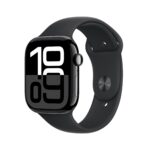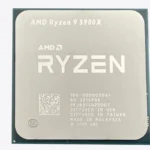Looking for a phone solution for your home that doesn’t rely on old-fashioned landlines? VoIP (Voice over Internet Protocol) phones have rapidly become the go-to choice for modern households. They use your internet connection to make calls, offering flexibility, advanced features, and massive savings compared to traditional telephone services.
Homeowners today are embracing VoIP not just for cost savings, but for the ability to have high-quality, versatile communication tools that integrate voicemail, caller ID, call forwarding, mobile apps, and even smart home features. With a wide range of options — from plug-and-play adapters to full-featured desk phones — there’s a VoIP solution for every home setup, whether you’re outfitting a home office, staying connected with distant family, or cutting the cord from your cable company altogether.
The best VoIP phones for home use balance affordability, crystal-clear audio, user-friendly setup, and ongoing reliability. Some providers, like Google Voice and Ooma, even allow for free or low-cost nationwide calling, making it easier than ever to stay connected without the monthly fees of traditional phone plans.
Top VoIP Phones for Home Use (2025)
Whether you’re just starting out with VoIP or upgrading an older system, these are the models worth considering:
1. Obihai OBi200 with Google Voice
Best Overall Value VoIP Phone Adapter
Why It’s Great:
The OBi200 transforms any standard phone into a VoIP-powered device using Google Voice — providing a near-free home phone solution that’s easy to manage and maintain.
Key Features:
- Free unlimited calling in the U.S. and Canada via Google Voice
- Supports up to 4 separate VoIP accounts
- USB port for optional Wi-Fi or Bluetooth accessories
- Industry-leading reliability and low maintenance
Expanded Review:
With Google discontinuing direct support for landline setups, the Obihai OBi200 remains one of the few reliable bridges for traditional phones. The device is ideal for people who want near-zero ongoing costs and maximum flexibility. Setup takes minutes, and firmware updates keep it secure. Perfect for families, seniors, and remote workers alike.
2. Yealink T31P IP Phone
Best Entry-Level VoIP Phone for Simplicity
Why It’s Great:
Yealink is known for making robust IP phones, and the T31P offers exceptional audio quality and reliability without a steep learning curve or premium price.
Key Features:
- Dual Ethernet ports (10/100 Mbps) with Power over Ethernet (PoE)
- Two-line capability with easy toggling
- Clear backlit LCD screen
- Smart noise cancellation for HD voice clarity
Expanded Review:
Designed with both beginners and budget-conscious users in mind, the T31P is compatible with almost every major VoIP provider, including RingCentral, Vonage, and 8×8. It also supports basic conference calling, which can be useful for home-based businesses or busy households managing multiple schedules.
3. Grandstream GXP2135
Best for Power Users and Home Offices
Why It’s Great:
For those who need a serious desk phone setup at home — whether for telehealth, remote work, or running a side business — the GXP2135 offers enterprise-grade features without the enterprise price tag.
Key Features:
- 8 line appearances, 4 simultaneous SIP accounts
- Dual Gigabit Ethernet ports
- 32 programmable speed-dial/BLF keys
- Integrated Bluetooth and HD Audio support
Expanded Review:
The GXP2135 is a professional-grade phone built for heavy users. Integrated Bluetooth means you can pair a headset easily, while the 32 programmable keys let you quickly switch lines or contacts. It’s also SRTP/TLS secured, making it a smart pick for people handling sensitive information at home.
4. Cisco ATA 192
Best for Keeping Your Favorite Landline Phone
Why It’s Great:
The Cisco ATA 192 lets you preserve that vintage wall phone or classic cordless set while upgrading to modern VoIP features and savings.
Key Features:
- 2 FXS ports for two analog phones or a phone and a fax machine
- Dual VoIP account support for flexibility
- Quality of Service (QoS) and advanced security protocols
- Solid build quality and firmware from Cisco
Expanded Review:
Perfect for homes that want to keep using legacy handsets without missing out on VoIP savings. Setup is straightforward and flexible, making it a great choice for grandparents, rental properties, and anyone attached to their old-school phones but ready for a modern upgrade.
5. Ooma Telo Air 2
Best All-in-One Wireless VoIP Solution
Why It’s Great:
Ooma has carved out a reputation as a consumer-friendly VoIP solution, and the Telo Air 2 is their most flexible and Wi-Fi-ready offering yet.
Key Features:
- Built-in Wi-Fi and Bluetooth
- Optional Ooma Premier subscription with advanced call blocking and voicemail-to-email
- Free nationwide calling (just pay minimal taxes and fees)
- Easy-to-use mobile app for remote access
Expanded Review:
If you’re looking for a true “plug and play” VoIP option, it’s hard to beat Ooma’s combination of simplicity and features. Setup takes minutes, even for non-techies. With optional add-ons like a smart home security system and wireless handsets, Ooma can also expand into a broader smart home ecosystem if needed.
VoIP Phone Comparison Chart
| Model | Type | VoIP Accounts | Ethernet Ports | Wireless Capabilities | Best For |
|---|---|---|---|---|---|
| Obihai OBi200 | Adapter | 4 | 1 | Optional (with USB) | Budget setups |
| Yealink T31P | Desk Phone | 2 | 2 (Fast) | No | Beginners |
| Grandstream GXP2135 | Desk Phone | 4 | 2 (Gigabit) | Bluetooth | Power users and offices |
| Cisco ATA 192 | Adapter | 2 | 1 | No | Keeping landline phones |
| Ooma Telo Air 2 | VoIP Box | 1+ | 1 | Wi-Fi + Bluetooth | Wireless plug-n-play |
Things to Consider Before Buying a VoIP Phone for Home
- Provider Compatibility:
Not every VoIP phone works with every service. Confirm that your hardware is compatible with the VoIP provider you choose (e.g., Google Voice, Ooma, Vonage, RingCentral). - Internet Speed:
A reliable VoIP experience requires a stable internet connection with at least 5 Mbps available bandwidth per active call. Homes with multiple users may want faster speeds to avoid call drops. - Ethernet vs. Wi-Fi:
Wired Ethernet connections are typically more reliable, but newer devices like the Ooma Telo Air 2 allow wireless setup for maximum convenience. - Power Backup:
Traditional landlines often worked during power outages. VoIP systems depend on your internet router and electricity, so consider adding a UPS (uninterruptible power supply) for emergency resilience. - 911 Support:
Many VoIP services offer Enhanced 911 (E911), but you must register your address correctly during setup. Some low-cost providers may not offer 911 support at all, so it’s important to double-check. - International Calling Options:
Many VoIP providers offer low-cost international call packages — a big win for families staying in touch with relatives abroad.
Best VoIP Providers for Home Use
Choosing the right hardware is only half the equation — your VoIP provider determines your call quality, features, pricing, and reliability. Here are the top VoIP services tailored for home users in 2025:
1. Google Voice
- Best For: Free home calling in the U.S. and Canada
- Pros: Completely free for personal use, supports voicemail and call forwarding, integrates with Gmail
- Cons: Requires a third-party adapter like Obihai; no native emergency calling
2. Ooma
- Best For: Plug-and-play home users wanting easy setup and 911 support
- Pros: Crystal-clear calls, reliable service, 911 support, optional advanced features via Ooma Premier
- Cons: Small monthly fee for taxes and fees (usually $4–$7/mo), hardware cost up front
3. MagicJack
- Best For: Super budget-conscious users who want a simple VoIP solution
- Pros: Low upfront cost, free U.S. calling, mobile app included
- Cons: Fewer features, reports of lower call quality vs. premium services
4. Vonage
- Best For: Households with international calling needs
- Pros: Unlimited international calling plans, premium support, mobile app
- Cons: Monthly fees higher than Ooma or Google Voice
5. 8×8
- Best For: Home offices or remote workers who want pro-level features
- Pros: Excellent uptime, business-grade features, integrations with Microsoft Teams and Zoom
- Cons: Overkill for casual users, higher monthly cost
How to Set Up a VoIP System at Home
Setting up VoIP in your home is easier than ever. Here’s a step-by-step breakdown to get you started:
Step 1: Choose Your VoIP Provider
Decide whether you want a free solution (like Google Voice) or a paid service (like Ooma or Vonage) with features like 911 support, caller blocking, or voicemail-to-email.
Step 2: Select Your VoIP Hardware
- Use a VoIP desk phone if you want an all-in-one unit.
- Use a VoIP adapter if you want to keep your old home phones.
- Use a VoIP box like Ooma if you want a wireless, consumer-friendly solution.
Step 3: Connect to Your Network
- Ethernet: Connect your VoIP device directly to your router using an Ethernet cable for best reliability.
- Wi-Fi: If your device supports Wi-Fi (like Ooma Telo Air 2), follow the manufacturer’s app or interface to connect wirelessly.
Step 4: Activate and Register
Log in to your VoIP provider’s portal and register your device. Enter your E911 address if supported. For Google Voice, you’ll need to configure your OBi device in the OBiTALK portal.
Step 5: Test and Customize
Make a few test calls, set up voicemail, and configure features like call forwarding, voicemail-to-email, and call blocking.
Optional Step: Add Mobile Access
Many VoIP services offer mobile apps, letting you answer home calls on your smartphone — perfect when you’re traveling or away from the desk.
Ooma Telo VoIP Free Internet Home Phone
The Ooma Telo transforms your home phone experience by providing free phone service through your existing internet connection. This small device connects to your broadband and allows you to make free nationwide calls, only requiring payment for applicable taxes and fees.
Calls made with Ooma benefit from enhanced clarity thanks to their HD Voice technology. This feature doubles the fidelity of your phone calls by capturing twice the speech information compared to standard voice calls – including traditional landlines.
The basic Ooma Telo package provides access to their VoIP service, but several bundle options exist to suit different needs. These include the Ooma Telo+ HD3 Handset bundle, the Family Phone Bundle, and the Home Office Bundle.
For homes with unreliable internet or concerns about power outages, the Ooma Telo LTE option provides peace of mind. This version comes with an LTE cellular connection adapter and battery backup, ensuring phone service continues even when internet or power fails.
Setup is straightforward – users simply connect the Telo to their internet router and existing home phone. The system works with most standard phones, though Ooma offers their own handsets with enhanced features.
Ooma stands out in the VoIP market by providing free basic service after purchasing the hardware. Premium features like call blocking, voicemail forwarding, and second line service are available through paid subscription plans.
The HD3 Handset pairs with the Telo to maximize call quality and add useful features enabled by Ooma’s cloud platform. This combination delivers superior audio compared to typical cordless phones when making VoIP calls.
Grandstream HT801 Analog Telephone Adapter
The Grandstream HT801 is a single port analog telephone adapter (ATA) that bridges the gap between traditional phone systems and modern VoIP technology. This compact device lets users connect a standard analog phone to an internet-based calling service.
Its small footprint makes it perfect for home use where space might be limited. The HT801 doesn’t take up much room but delivers powerful VoIP capabilities for both residential and office settings.
Setting up the HT801 is straightforward for most users. Once connected, it transforms an ordinary telephone into a VoIP-capable device without requiring the purchase of new equipment.
Cost-wise, the HT801 is reasonably priced at around $38 on Amazon. This makes it an affordable option for people wanting to switch to VoIP without a major investment.
The adapter creates a high-quality and manageable IP telephony solution for home environments. Users report clear call quality and reliable performance for everyday use.
For homes that only need to connect one analog phone to a VoIP service, the HT801 is an excellent choice. Households with multiple phone lines might want to consider the HT802 model instead, which offers similar features but with two ports.
The device delivers powerful routing capabilities alongside its VoIP functions. This makes it a versatile addition to a home network setup beyond just handling phone calls.
Vonage Box for Home Internet and VoIP
The Vonage Box is a telephone adapter that connects to your broadband internet to provide VoIP phone service. This small device lets you use regular phones with internet calling technology instead of traditional phone lines.
When you sign up for Vonage home phone services, they’ll send you this adapter. It’s simple to set up – just connect it to your internet router and plug in your existing phones.
One great feature of the Vonage Box is that it supports up to two phone numbers. This makes it perfect for homes that need separate lines for different family members or a home office.
The adapter works with your existing home phones, so there’s no need to buy new equipment. This saves money and reduces the hassle of adjusting to new devices.
Vonage plans start at $9.99 per month, making it an affordable option compared to traditional landlines. Their service includes standard features like voicemail, caller ID, and call waiting.
The Vonage Box phone adapter (models VDV22/VDV23) is designed for reliability. It maintains call quality by prioritizing voice data through your internet connection.
For people who travel, Vonage offers flexibility. You can take your adapter with you and use your home phone number wherever you have internet access.
Unlike old-school landlines, Vonage’s VoIP service includes modern features like voicemail-to-email and the ability to forward calls to your mobile phone. These additions make it more versatile than traditional phone services.
The service works through any high-speed internet connection, making it accessible for most households. As long as you have decent internet speed, call quality remains clear and reliable.
Panasonic KX-TGD832M Cordless Phone
The Panasonic KX-TGD832M stands out as a reliable choice for home phone needs. This model comes with one base unit and one extra handset, making it perfect for homes with multiple rooms.
One of the biggest strengths of this phone is its excellent sound quality. The KX-TGD832M ranks highly for clear conversations, strong range, and user-friendly controls.
The phone includes a built-in answering machine to capture important messages when you’re away. It also offers smart call blocking features to help reduce unwanted spam calls and scams.
For busy households, the system can grow with your needs. It’s expandable to six handsets without requiring additional phone lines or wall jacks.
The KX-TGD832M includes a practical full duplex speakerphone function. This allows for hands-free conversations while cooking or working around the house.
A handy feature for multitaskers is the Auto Answer with Voice Command. This lets you answer calls using just your voice when your hands are busy.
The phone also includes two-way recording capabilities. This helps capture important conversations for later reference.
Battery life proves solid in everyday use, with sufficient talk time for most households. The high-contrast display makes reading caller information easy, even in poor lighting.
Setting up the system is straightforward and doesn’t require technical expertise. The base plugs into both power and your phone line, while additional handsets only need electrical outlets.
For those looking to connect mobile devices, this model offers Bluetooth compatibility according to some seller listings.
Yealink W60p DECT IP Phone
The Yealink W60P stands out as a versatile wireless phone system perfect for home-based professionals. This cordless DECT IP phone combines mobility with strong performance, making it a solid addition to any home office setup.
The system includes a W60B base station that can handle up to 8 handsets, 8 SIP accounts, and 8 concurrent calls. This scalability proves useful for growing home businesses or households with multiple users.
Users appreciate the phone’s build quality and functionality. The handset features a clear 2.4-inch display that’s easy to read and navigate. Its sound quality receives positive feedback, with many noting its clarity during calls.
For those using home VoIP systems, the W60P works well with FreePBX and connects through your local network. This compatibility makes it a practical choice for users with existing setups.
Battery life doesn’t disappoint either. The handset delivers up to 30 hours of talk time and 400 hours of standby time, reducing the need for frequent charging.
The base station connects to your network via Ethernet, while handsets communicate wirelessly using DECT technology. This arrangement provides both reliability and freedom of movement throughout your home.
The W60P works with most popular SIP-based phone systems and hosted service providers. This wide compatibility ensures you won’t need to switch providers to use this device.
Setup is straightforward, making it accessible even for those new to VoIP technology. The phone supports important business features like call forwarding, three-way conferencing, and call transfer.
For home workers needing a professional yet user-friendly phone system, the Yealink W60P offers a balanced mix of features, reliability, and ease of use.
VoIP.ms for Residential Use
VoIP.ms offers a cost-effective solution for home phone service. Many users switch to this provider when looking for affordable options without sacrificing quality.
The service provides crystal-clear international calls at rates much lower than traditional phone companies. This makes it perfect for families who need to stay in touch with relatives abroad.
Reddit users often recommend VoIP.ms specifically for home use. Its pricing structure appeals to budget-conscious consumers who still want reliable service.
Setting up VoIP.ms at home is straightforward. Users can connect their existing phones through adapters or use supported IP phones for better integration.
The Cisco IP Phone 6800 Series works well with VoIP.ms. These phones deliver good audio quality while remaining affordable for residential customers.
VoIP.ms also supports softphone applications. This allows family members to make and receive calls through computers or smartphones instead of physical phones.
The softphone compatibility gives households flexibility. Parents can use desk phones while kids might prefer the mobile app version.
Monthly costs start much lower than traditional landlines. This makes VoIP.ms competitive against other providers that charge $8.97 or more per month for similar services.
Advanced features include voicemail-to-email, call forwarding, and custom caller ID. These functions used to be premium add-ons with conventional phone companies but come standard with VoIP.ms.
The service works with your existing internet connection. Families with decent broadband speeds typically experience no call quality issues.
Nextiva Business and Home VoIP Service
Nextiva offers reliable VoIP solutions that work well for both business and home settings. Their service comes with HD voice quality, making conversations clear and professional.
The company provides various VoIP desk phones from manufacturers like Poly, Panasonic, and Cisco. These phones pair with Nextiva’s service to create a complete communication system.
For those who prefer mobility around the house or office, Nextiva offers cordless VoIP options. The X-651 cordless handset works with their IP PBX service, giving users flexibility without sacrificing features.
Price-wise, Nextiva’s plans start at $18.95 per month per user, making it accessible for home users and small businesses alike. The plans include unlimited nationwide calling, which eliminates worries about minute restrictions.
Text messaging, conferencing, and team chat features come standard with Nextiva’s service. These tools help families or home-based workers stay connected through multiple channels.
The company has built a solid reputation, serving over 100,000 brands and a million-plus users. This track record speaks to their stability and service quality.
Users aren’t locked into internet service agreements with Nextiva. This flexibility allows home users to change internet providers without disrupting their phone service.
Nextiva’s VoIP phone system uses cloud technology to deliver features traditionally found in expensive business systems. Home users benefit from professional-grade communication tools without the enterprise price tag.
Setup requires minimal technical knowledge, making it appropriate for typical home users. The system works with existing internet connections, requiring only the VoIP phones and service subscription.
Customer support remains a highlight, with the company marketing their “Amazing Service” alongside their technical offerings. This support proves valuable for home users who may need assistance with setup or troubleshooting.
Amazon VoIP Phones Best Sellers
Amazon offers a wide selection of VoIP phones for home use. The platform’s best-seller lists provide a good overview of what other customers prefer.
The Ooma Telo VoIP consistently ranks as a top choice. It offers free home phone service with unlimited nationwide calling. Many users choose it as an affordable landline replacement.
For families needing multiple handsets, the Ooma Telo with HD3 Handsets creates a complete home phone system. This package includes mobile app access and robocall blocking features.
Amazon’s VoIP Telephone Products category showcases additional options beyond just phones. These include adapters, headsets, and specialized equipment for home offices.
The VoIP Telephone Handsets section highlights compatible handsets for existing systems. These allow users to expand their home setup without replacing the entire system.
Amazon’s best seller lists change regularly based on customer purchases and reviews. Checking the current top 100 VoIP phones provides the most up-to-date options.
Price points vary widely among Amazon’s VoIP offerings. Basic models start at budget-friendly prices, while premium systems with multiple handsets and advanced features cost more.
Many Amazon listings include customer reviews and ratings. These provide real-world feedback on reliability, call quality, and ease of setup – important factors when choosing a home VoIP phone.
Ubiquiti Residential VoIP Systems
Ubiquiti offers VoIP solutions that work well in home settings through their UniFi Talk product line. These systems integrate with other Ubiquiti networking equipment, making them a good choice for homes already using UniFi products.
For homeowners wanting to replace traditional landlines, Ubiquiti provides options that can connect to existing phone wiring. The Talk Telephone Adapter allows you to use conventional analog phones with their VoIP system, saving you from replacing all your phones.
Many users have successfully implemented UniFi Talk in medium to large homes as a landline replacement. The system works particularly well when integrated with a complete UniFi network setup.
The phone options include desk phones and portable handsets that provide modern features while maintaining reliability. Call quality remains high when the network is properly configured with low latency.
One advantage of Ubiquiti’s approach is the unified management interface. Users can control their phones through the same dashboard used for other network devices, simplifying home tech management.
For residential installations where running new cables isn’t practical, Ubiquiti’s VoIP can operate over existing networks. This makes it a practical solution for homes where second cable installation would be difficult.
The system adheres to industry SIP standards, ensuring compatibility with well-designed networks. This matters particularly for homes using wireless internet service providers where latency could affect call quality.
Pricing falls into the mid-range for residential VoIP services, with initial equipment costs offset by potential savings on monthly service charges compared to traditional phone companies.
Best Buy VoIP Home Equipment
Best Buy offers a variety of VoIP equipment for home users looking to switch from traditional landlines. Their selection includes phones, adapters, and routers specifically designed for internet calling.
The store’s lineup features both basic and advanced VoIP home phones that provide clear call quality. Many models come with extra features like caller ID, call waiting, and conference calling capabilities.
For families, Best Buy’s VoIP phone systems offer an easy communication solution. These systems often include expandable handsets so users can place phones throughout their home.
The VTech DS6151 is one popular option at Best Buy. This DECT 6.0 expandable cordless phone works with multiple lines and can grow with a household’s needs.
Customers shopping at Best Buy can find VoIP phones for sale both online and in-store. The retailer frequently runs promotions on these communication devices, making them more affordable for home users.
Most VoIP equipment at Best Buy is designed for simple setup. Users can typically connect their new phone to their internet router and begin making calls quickly.
Beyond the devices themselves, Best Buy also sells the necessary accessories. Adapters that convert analog signals to digital are essential for those who want to use existing phones with VoIP service.
For those concerned about call quality, many Best Buy VoIP options include HD voice features. This technology provides crystal-clear conversations compared to traditional phone lines.
Best Buy staff can help customers choose the right VoIP home phone based on their specific needs. They can explain the differences between models and recommend appropriate calling plans.
Understanding VoIP Phone Features
VoIP phones come with specific features that make them ideal for home use. These features enhance call quality and ensure seamless integration with your existing setup.
Key Technical Specifications
When choosing a VoIP phone for home use, pay attention to these important specs:
Audio Quality – Look for phones with HD voice capability and noise cancellation. These features make conversations clearer, especially in busy home environments.
Display – A good screen helps manage calls and access features easily. Color displays are easier to read, while larger screens show more information at once.
Modern VoIP phones include helpful extras like:
- Programmable keys for quick access to common functions
- Call forwarding to never miss important calls
- Voicemail with easy access and management
- Conference call capabilities for family discussions
Battery life matters for cordless models. The best options provide 8+ hours of talk time and several days on standby.
Importance of Compatibility with Home Networks
Your VoIP phone must work properly with your home internet setup. This compatibility ensures reliable call quality and prevents frustrating connection issues.
First, check your internet speed. Most VoIP services need at least 100 Kbps upload and download speeds per line. For crystal-clear HD calls, aim for 1 Mbps or higher.
Router quality affects call performance too. VoIP systems work best with routers that support QoS (Quality of Service) settings. These settings prioritize voice traffic over other data, preventing choppy calls when someone streams videos.
Consider power backup options. Unlike traditional landlines, VoIP phones stop working during power outages unless you have battery backup systems in place.
Wi-Fi vs. Ethernet connections matter as well. Wired connections typically provide more stable performance for important calls, while Wi-Fi offers flexibility in phone placement throughout your home.
Benefits of Using VoIP Phones at Home
Switching to VoIP phone service at home offers significant advantages that can improve your communication while saving money. These modern phone systems work through your internet connection instead of traditional phone lines.
Cost-Effectiveness Compared to Traditional Phones
VoIP services typically cost much less than traditional landline phones. Many homes can save 50-80% on their monthly phone bills after switching to VoIP. This happens because VoIP uses your existing internet connection rather than requiring separate phone lines.
Long-distance and international calls are especially cheaper with VoIP compared to traditional phone services. Some VoIP providers even include unlimited calling to certain countries in their basic packages.
The startup costs are minimal too. You can often use your existing phones with an adapter, or purchase VoIP-ready phones starting around $30. Many services charge under $20 monthly for home use.
Another money-saving benefit is that VoIP requires less bandwidth than most people expect. A standard home internet connection can usually handle VoIP calls without requiring expensive upgrades.
Enhanced Features for Modern Communication
VoIP systems come packed with advanced features that traditional phones simply can’t match. Call forwarding, voicemail-to-email, caller ID, and call blocking are standard with most VoIP services.
Many VoIP providers include:
- Virtual numbers from different area codes
- Call recording for important conversations
- Video calling capabilities
- Multi-device ringing (calls ring on your home phone and mobile)
- Automated attendants for directing calls
VoIP services deliver crystal-clear voice quality through digital transmission. This technology converts your voice into data packets sent over your broadband connection.
The flexibility of VoIP is remarkable. Users can make calls from multiple devices using the same number. This means answering on your home phone, computer, or smartphone depending on your situation.
Frequently Asked Questions
VoIP phones offer many advantages for home users looking to upgrade their communication systems. Many consumers have specific questions before making a purchase decision.
What are the top-rated VoIP phones for residential use currently available?
The Ooma Telo VoIP Free Internet Home Phone ranks highly among residential users. It offers free nationwide calling with only monthly taxes to pay after the initial device purchase.
The Grandstream HT801 Analog Telephone Adapter is another popular choice. It lets you connect your existing phones to VoIP service, saving money while keeping familiar equipment.
The Yealink W60p DECT IP Phone stands out for its excellent call quality and wireless range. It works well for larger homes where mobility is important.
How can one choose the best VoIP phone service for a small home office?
Consider your call volume and features needed. If you make many business calls, select a service with unlimited calling like Vonage.
Check internet speed requirements. Most VoIP services need at least 100 kbps per line, but more bandwidth ensures better call quality.
Look at included features. Many VoIP services can save up to 90% on monthly phone bills compared to traditional landlines, while offering more features.
Are there any VoIP phone models that work well without a traditional phone line?
Yes, all true VoIP phones work without traditional phone lines. They connect directly to your internet service.
The Vonage Box for Home Internet and VoIP is designed specifically for this purpose. It connects to your router and provides phone service over the internet.
The Ooma Telo also works independently of landlines. It connects to your home internet and provides phone service with minimal setup.
What are the primary benefits of using a VoIP phone for home over a traditional landline?
Cost savings are substantial. Most homes save 50-80% on monthly phone costs when switching to VoIP.
Additional features come standard with VoIP. These include caller ID, call waiting, voicemail, call forwarding, and often video calling capabilities.
Portability is another advantage. Your phone number works anywhere you have internet, making it perfect for travelers or people with multiple residences.
Can you recommend a reliable VoIP cordless phone that is suitable for home use?
The Panasonic KX-TGD832M Cordless Phone works well when connected to VoIP adapters. It offers great range and battery life.
For dedicated VoIP solutions, Yealink W60 phones are highly recommended. They’re reliable DECT phones specifically designed for VoIP.
SIP DECT phones generally work better than WiFi phones for home use. They provide more reliable connections and better audio quality.
What should be considered when looking for a VoIP phone system compatible with home internet setups?
Internet speed and reliability are crucial. VoIP requires stable internet—fiber or cable connections typically work best.
Consider your router quality. Older routers may struggle with VoIP traffic and reduce call quality. QoS (Quality of Service) features help prioritize voice traffic.
Power backup options matter. Unlike traditional phones, VoIP phones don’t work during power outages unless you have battery backup for your internet equipment.







